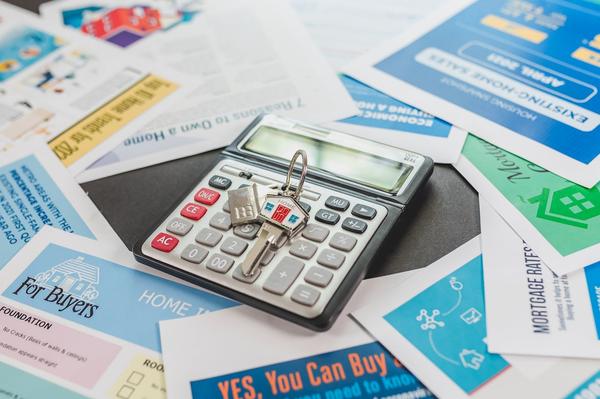How to Sell Your Home in a Buyer’s Market: Strategies for Standing Out
Short-term rentals are properties listed on platforms like Airbnb, Vrbo, and Booking.com. They typically cater to vacationers, business travelers, or temporary guests, with stays ranging from a few nights to a few weeks.
Benefits of Short-Term Rentals
Short-term rentals have the potential for higher rental income compared to long-term leases. If your property is located in a popular tourist destination, near business hubs, or close to major events, you can charge premium rates per night.
One of the biggest advantages is owner flexibility. Unlike long-term leases, you can block off dates for personal use, making this an ideal option for property owners who want to enjoy their home while still generating income.
There may also be tax benefits for short-term rental owners, including deductions on maintenance, utilities, and property improvements. Additionally, pricing for short-term rentals can be adjusted based on market demand, allowing owners to maximize profits during peak seasons.
One of the biggest advantages is owner flexibility. Unlike long-term leases, you can block off dates for personal use, making this an ideal option for property owners who want to enjoy their home while still generating income.
There may also be tax benefits for short-term rental owners, including deductions on maintenance, utilities, and property improvements. Additionally, pricing for short-term rentals can be adjusted based on market demand, allowing owners to maximize profits during peak seasons.
Challenges of Short-Term Rentals
Short-term rentals do not guarantee consistent income. Seasonal fluctuations, changing market trends, and unexpected vacancies can make rental income unpredictable.
Managing a short-term rental requires frequent guest communication, cleaning, and property maintenance. Many owners hire property managers to help, but this adds to the overall cost.
Local regulations can also impact short-term rental profitability. Some cities have strict zoning laws, permit requirements, or rental caps, so it is important to research local policies before listing your property.
Additionally, short-term rentals often require higher upkeep costs due to frequent guest turnover, increased utility usage, and the need for regular repairs and deep cleaning.
Managing a short-term rental requires frequent guest communication, cleaning, and property maintenance. Many owners hire property managers to help, but this adds to the overall cost.
Local regulations can also impact short-term rental profitability. Some cities have strict zoning laws, permit requirements, or rental caps, so it is important to research local policies before listing your property.
Additionally, short-term rentals often require higher upkeep costs due to frequent guest turnover, increased utility usage, and the need for regular repairs and deep cleaning.
Long-Term Rentals: Stability with Less Management
Long-term rentals involve leasing your property to tenants for several months or years, typically under a 12-month lease agreement.
Benefits of Long-Term Rentals
Long-term rentals provide consistent, predictable income. With a fixed monthly rent, landlords can enjoy steady cash flow without the uncertainty of short-term fluctuations.
Managing a long-term rental requires less hands-on involvement. Fewer tenant turnovers mean less time spent on marketing, cleaning, and coordinating bookings. Many landlords hire a property manager to handle maintenance and tenant concerns, making this a more passive income source.
Long-term rentals are also less affected by legal restrictions. Unlike short-term rentals, long-term leases are generally more widely accepted and face fewer regulatory challenges.
Additionally, tenants typically cover utilities, cleaning, and minor maintenance costs, reducing the owner’s financial responsibility.
Managing a long-term rental requires less hands-on involvement. Fewer tenant turnovers mean less time spent on marketing, cleaning, and coordinating bookings. Many landlords hire a property manager to handle maintenance and tenant concerns, making this a more passive income source.
Long-term rentals are also less affected by legal restrictions. Unlike short-term rentals, long-term leases are generally more widely accepted and face fewer regulatory challenges.
Additionally, tenants typically cover utilities, cleaning, and minor maintenance costs, reducing the owner’s financial responsibility.
Challenges of Long-Term Rentals
While long-term rentals provide stability, they typically generate lower income than short-term rentals. Since rental rates are fixed for the duration of the lease, owners cannot adjust pricing based on seasonal demand.
Long-term rentals also offer less flexibility for property owners.Once a lease is signed, the owner cannot use the property for personal stays until the lease expires.
Tenant-related risks are another consideration. Late rent payments, eviction processes, and property damage can all create challenges for landlords. Conducting thorough background checks and having a solid lease agreement in place can help minimize these risks.
Finally, property appreciation may be slower with a long-term rental, as owners do not have the flexibility to sell the property or increase rent as quickly as they would with a short-term rental.
Long-term rentals also offer less flexibility for property owners.Once a lease is signed, the owner cannot use the property for personal stays until the lease expires.
Tenant-related risks are another consideration. Late rent payments, eviction processes, and property damage can all create challenges for landlords. Conducting thorough background checks and having a solid lease agreement in place can help minimize these risks.
Finally, property appreciation may be slower with a long-term rental, as owners do not have the flexibility to sell the property or increase rent as quickly as they would with a short-term rental.
Short-Term vs. Long-Term Rentals: Which One Is Best for You?
Choosing between short-term and long-term rentals depends on your property’s location, financial goals, and how involved you want to be.
If your property is in a high-demand vacation area and you want the potential for higher earnings with flexibility, a short-term rental may be the best option—provided you can handle the management and legal requirements.
If you prefer steady income, less hands-on involvement, and lower operational costs, a long-term rental is the safer and more predictable choice.
Still unsure which rental strategy is right for you? Let’s discuss your options. Whether you’re considering listing your property on Airbnb or looking for long-term tenants, we can help you maximize your rental income and investment potential.
Contact us today to get expert guidance on your rental property.
If your property is in a high-demand vacation area and you want the potential for higher earnings with flexibility, a short-term rental may be the best option—provided you can handle the management and legal requirements.
If you prefer steady income, less hands-on involvement, and lower operational costs, a long-term rental is the safer and more predictable choice.
Still unsure which rental strategy is right for you? Let’s discuss your options. Whether you’re considering listing your property on Airbnb or looking for long-term tenants, we can help you maximize your rental income and investment potential.
Contact us today to get expert guidance on your rental property.
Categories
Recent Posts

The “Silent Dealbreaker”: Hidden Issues That Turn Buyers Away Before the Offer Stage

When to Stage and When to Save: ROI-Based Home Presentation Tips

Prepping for Multiple Offers: How to Position Your Home for a Bidding War

Modern Buyers, Modern Expectations: Features That Seal the Deal in 2025

The "Back Pocket Offer": How to Attract Serious Buyers Before You Even List

Downsizing with Dollars in Mind: How to Sell Big and Buy Smart in One Move

Your Home’s Digital First Impression: Listing Copy & Photo Strategies That Sell

The Tenant Factor: How Occupied Properties Can Still Sell for Top Dollar

When Zillow Isn’t Enough: Why Professional Pricing Still Wins in 2025

The Smarter Seller’s Checklist: What to Do 30, 60, and 90 Days Before You List
GET MORE INFORMATION

